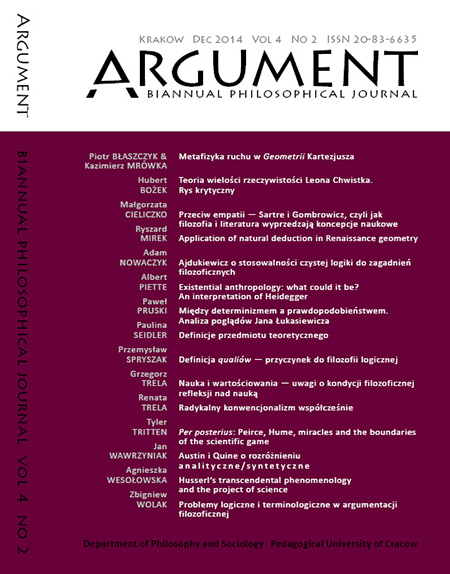Przeciw empatii – Sartre i Gombrowicz, czyli jak filozofia i literatura wyprzedzają koncepcje naukowe
Keywords:
body, corporeality, being, empathy, compassion, identification, interpersonal relations, mirror neurons, Jean Paul Sartre, Witold GombrowiczAbstract
Against empathy - Sartre and Gombrowicz, or how philosophy and literature precede scientific concepts: The article presents Jean Paul Sartre’s idea of the human body and the bodiliness described in his book Being and nothingness (1943). In this book, Sartre argued that every human relation is based on the objectification of one human by another, and entering into empathic contactis basically impossible. The author of the article has confronted this thesis with contemporary psychological and neuropsychological thought (mirror neuron theory) and has investigated how the category of empathy functions in literary studies. A very important part of this article is the reflection on the presence and topicality of Sartre’s beliefs in the literature. The author has conducted an interpretation of Witold Gombrowicz’s story Tancerz mecenasa Kraykowskiego (1926) from the collection Bakakaj (1957), and has shown that the ideas presented by Sartre are reflected there in a very interesting way. Sartre’s philosophy turns out to be absolutely up-to-date right now, more than many psychological theories — it not only supplies a philosophical base for the analysis of human relations (those also presented in literature), but also gives a certain tool for describing them in the form of specific language and terminology.


